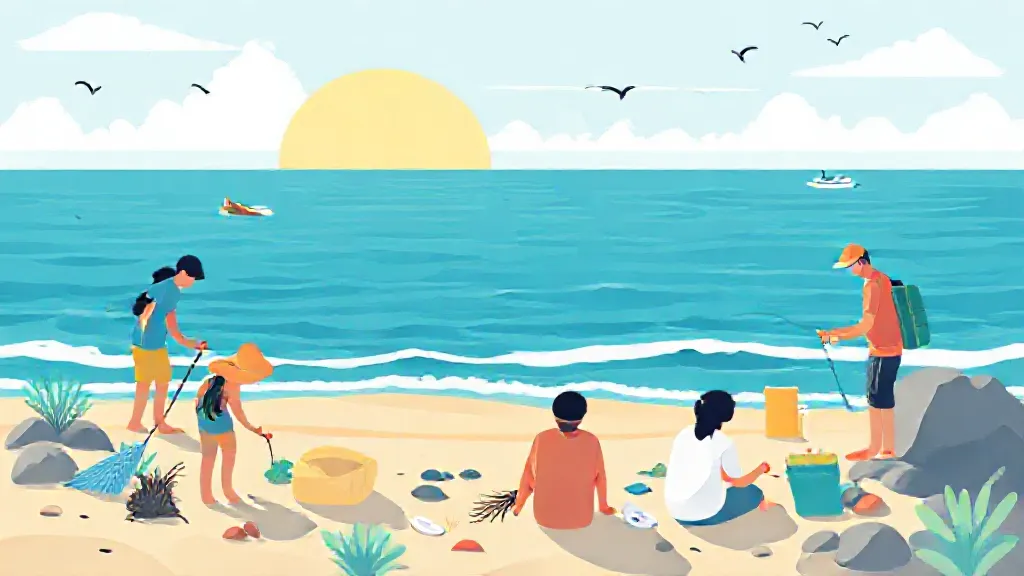The oceans cover over 70% of our planet, playing a critical role in sustaining life, regulating climate, and supporting biodiversity. However, they face unprecedented threats from pollution, overfishing, climate change, and habitat destruction. Individual actions can significantly contribute to ocean protection, and understanding these actions is essential for fostering a healthier marine environment.
Understanding the Importance of Ocean Conservation
Oceans are vital for life on Earth. They produce over half of the oxygen we breathe and are home to a diverse array of species, many of which are yet to be discovered. The health of the oceans directly impacts global weather patterns and climate regulation.
However, human activities have led to alarming declines in marine life and ecosystems. According to the United Nations, around 30% of fish stocks are overfished, and approximately 80% of marine pollution comes from land-based sources. Recognizing the importance of ocean conservation is the first step towards effective action.
Reducing Plastic Use: A Personal Commitment
One of the most pressing issues facing our oceans is plastic pollution. Millions of tons of plastic waste enter the oceans each year, harming marine life and ecosystems. Individuals can take significant steps to reduce plastic use, such as opting for reusable bags, bottles, and containers, and avoiding single-use plastics.
Participating in local clean-up efforts can also help remove plastic waste from beaches and waterways, directly benefiting marine habitats.
Supporting Sustainable Seafood Choices
Overfishing and destructive fishing practices threaten fish populations and marine ecosystems. Individuals can make a difference by choosing sustainable seafood options.
Resources like the Marine Stewardship Council (MSC) provide guidance on which seafood is harvested responsibly. By supporting sustainable fisheries, consumers can help ensure that fish populations remain healthy and ecosystems are protected for future generations.
Advocating for Policy Changes
While individual actions are crucial, systemic change is also necessary for long-term ocean protection.
Individuals can advocate for policies that protect marine environments by contacting local representatives, participating in public forums, and supporting organizations dedicated to ocean conservation. Engaging in grassroots movements and campaigns can amplify voices calling for stronger regulations on pollution, fishing practices, and coastal development.
Educating Others: Spreading Awareness
Education plays a vital role in ocean conservation.
By sharing knowledge about the importance of healthy oceans and the threats they face, individuals can inspire others to take action. Hosting workshops, giving presentations at schools, or using social media platforms to raise awareness can create a ripple effect, encouraging more people to participate in ocean protection efforts.
Participating in Citizen Science
Citizen science projects allow individuals to contribute to scientific research while learning about marine ecosystems.
Programs like the Ocean Conservancy's "Trash Free Seas" initiative or local beach monitoring efforts enable volunteers to collect data on marine debris and wildlife. This participation not only aids researchers but also fosters a deeper connection to the ocean, motivating individuals to protect it.
Engaging in Responsible Tourism
For those who travel to coastal areas, practicing responsible tourism can greatly impact ocean health.
Choosing eco-friendly accommodations, participating in guided tours that prioritize conservation, and respecting wildlife habitats are all ways to minimize negative effects on marine environments. By supporting local economies that prioritize sustainability, tourists can help promote practices that benefit the ocean.
Joining or Supporting Conservation Organizations
Many organizations are dedicated to protecting oceans and marine life.
By joining or supporting these groups, individuals can amplify their impact. Organizations like Oceana, the Ocean Conservancy, and the Surfrider Foundation work on various initiatives, from policy advocacy to habitat restoration. Contributing time, resources, or funds to these organizations can help advance their missions and foster a healthier ocean ecosystem.
